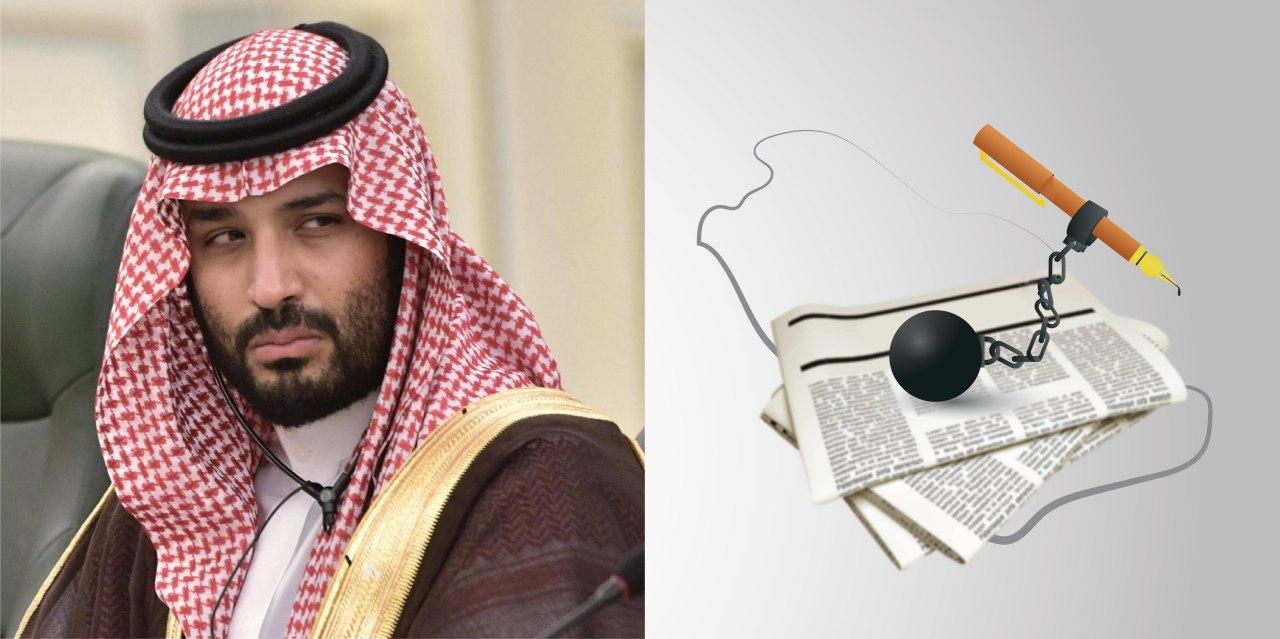
From behind prison bars, and amid fear of retaliation and unfair laws, journalists in Saudi Arabia celebratedWorld Press Freedom Day on 3 May 2020, under the theme,“Journalism Without Fear or Favor.” The United Nations proclaimed World Press Freedom Day in 1993 with the goal of reminding “governments of the need to respect their commitment to freedom of the press. It is also a day of reflection among media professionals about issues of press freedom and professional ethics.”
While, according to the UN, World Press Freedom Day represents an opportunity to celebrate the fundamental principles of freedom of the press, the Saudi government is working to deprive journalists of this freedom. It bars their right to access information and freely express their opinions and continues to arrest and try journalists. ESOHR has documented at least 22 cases in which the Saudi government has violated journalists’ rights and created a dangerous work environment for them.
Although defending the media from attacks on its independence is one of the main goals for commemorating this day, the Saudi government continues to ban media outlets and prevent the creation of any free and independent media.
World Press Freedom Day is also an opportunity to salute all journalists who lost their liveswhile performing their duties, yet the killers of journalists in Saudi Arabia, includingjournalist Jamal Khashoggi and photographer Hussein al-Faraj, remain free from the reach of justice and punishment.
On World Press Freedom Day, ESOHRbelieves that the Saudi government reached an unprecedented level of repression by murderingJamal Khashoggi in Istanbul and surveillingJeff Bezos, the owner of theWashington Post.In a letter to the Saudi government, UN special rapporteurs had previously confirmed that Crown Prince Mohammed bin Salman was directly responsible for the spying and called for an investigation into his irresponsible use of spyware to intimidate journalists, human rights advocates, and media owners.
In addition to the rapporteurs’ letter, the Saudi government has received a great deal of international criticism at the Human Rights Council. Citing the case of the murder of Jamal Khashoggi, international experts have notedthat Saudi Arabia is among the countries that have not respondedappropriately to crimes against journalists.
ESOHR believes that the Saudi government’s denial of the facts prevents any real change from occurring. According to the 2020 World Press Freedom Index published by Reporters Without Borders, Saudi Arabia ranks 172 out of 180 countries and remains in the “very bad” category. This indicates that the cycle of repression continues to expand, which Saudi Arabia denies.
The Saudi Human Rights Commission has said that formal laws “guarantee newspapers freedom of opinion and expression and the right to publish by various means within the scope of legal and regulatory provisions.”In conjunction with World Press Freedom Day on May 3, the Commission emphasizedon its Twitter account that the Law of Printing and Publication does not subject newspapers to monitoring except under extraordinary circumstances approved by the Prime Minister.
ESOHR notes that the Saudi government always relies on the Commission’s exception to justifyabuses and misuse of the laws against journalists and writers. ESOHR has documented laws and policies that legislate systematic abuse of freedom of the press and the ongoing, widespread use of the Penal Law for Crimes of Terrorism and its Financing to incriminatepeaceful activists and journalists. Through this vague wording,the government cancriminalize dissidents and opinion-holders.
On World Press Freedom Day, ESOHR affirms that the press in Saudi Arabia is a victim of unjust laws and practices and that the violations of its freedoms have been intensifying, increasing, and accelerating over the past few years. ESOHR stresses the importance of holding accountable all those responsible for killing and arbitrarily arresting journalists and subjecting them to unfair trials. This remains a first step towards creating a free environment for the press in Saudi Arabia.
